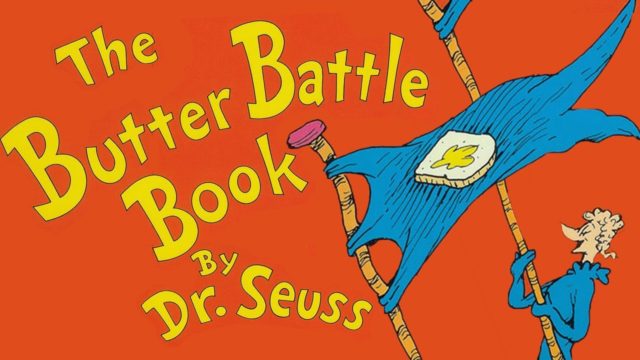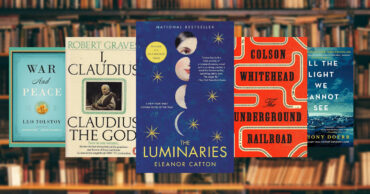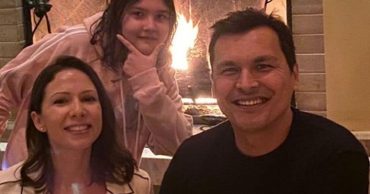
In 1984, Dr. Seuss released a book called The Butter Battle Book. Like its name suggests, the book is centered around two cultures called the Yooks and the Zooks, who come into conflict because of the side on which their bread is buttered. Over the course of the book, the Yooks and the Zooks come up with more and more powerful weapons, culminating in both cultures coming up with bombs called Bitsy Big-Boy Boomeroos for which there is no protection to be had. Curiously, The Butter Battle Book came to a close with what can be called a cliffhanger ending, with the leaders of both sides poised to make up of their Bitsy Big-Boy Boomeroos upon receiving sufficient provocation.
Considering the time at which The Butter Battle Book was released, it should come as no surprise to learn that it is a parable about the Cold War. To be exact, it was a parable about the dangerous nature of arms races, particularly when combined with the destructive power of nuclear weapons. Generally speaking, The Butter Battle Book is not considered to be one of Dr. Seuss’s better-known books for a number of reasons. For example, concern over arms races is not as strong in the present as when the United States and the Soviet Union were facing off with one another in the Cold War, meaning that its message is less relevant in the present than in the past. However, it should also be noted that Dr. Seuss depicted the differences between the Yooks and the Zooks as being more or less trivial in nature, which is something that has irked more than a few people over the course of its existence.
What Were Dr. Seuss’s Political Views?
Some people might be shocked by Dr. Seuss being so political in one of his books. If so, they shouldn’t be. Granted, Dr. Seuss stated that he didn’t write his stories with a moral in mind, but that doesn’t mean that they didn’t have messages embedded in them. For example, The Cat in the Hat has been interpreted as encouraging children to rebel instead of exhibiting mindless obedience, while the follow-up called The Cat in the Hat Comes Back has been interpreted to mean either anti-colonialism or an advocacy of democracy in general. Likewise, The Lorax is opposed to pollution, The Sneetches is opposed to anti-Semitism, and Yertle the Turtle is about how everyone should be free.
The political nature of Dr. Seuss is perhaps unsurprising considering that he was a liberal Democrat in the time of President Franklin Roosevelt, meaning that he supported the New Deal as well as fighting the Axis in World War II. Later in life, Dr. Seuss thought that there was more fear of communism than it warranted, not least because he was much more concerned about the impact of the House Un-American Activities Committee on the United States. With that said, Dr. Seuss was not perfect in all political respects, as shown by his support of the internment of Japanese-Americans during World War II. However, it is interesting to note that his opinion of both the Japanese and Japanese-Americans softened in later years, as shown by the fact that Horton Hears a Who! was dedicated to a Japanese friend of his. Summed up, it is a little bit surprising that Dr. Seuss wrote a book about the threat of nuclear weapons, but it really shouldn’t be considering his strong political beliefs throughout his life.
 Follow Us
Follow Us




